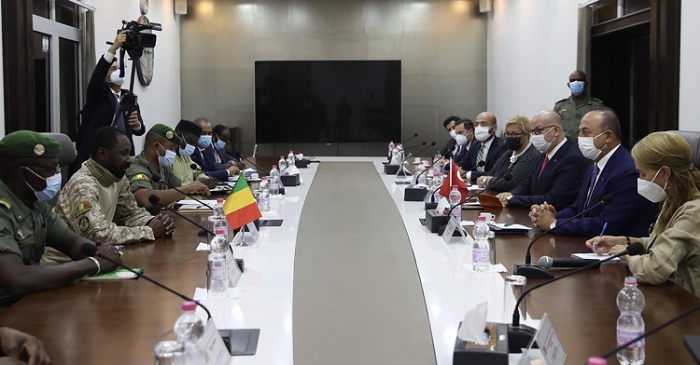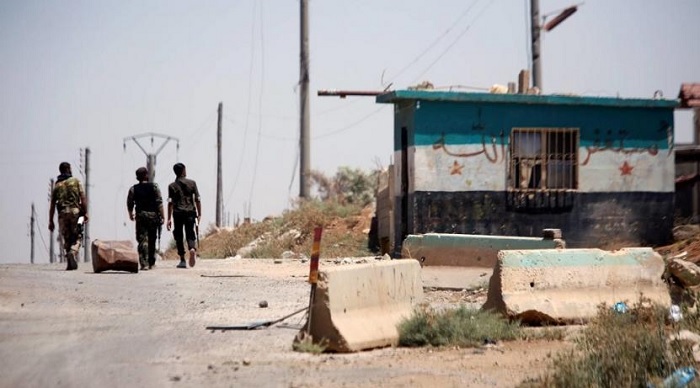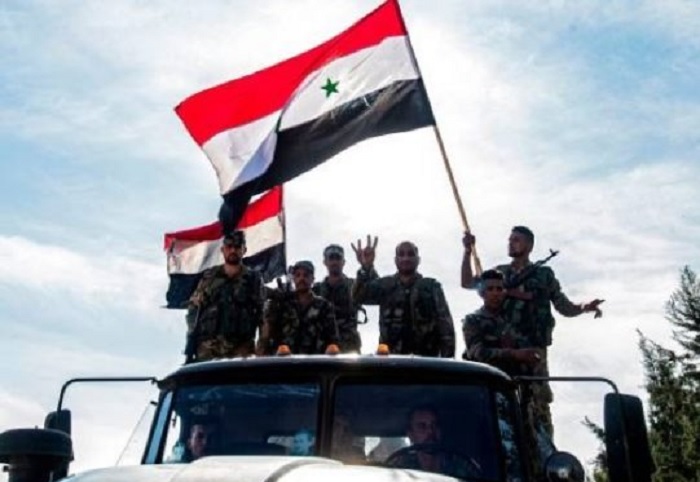Syrian army destroyed at least 10 Turkish armored vehicles near Idlib – source
In recent hours, Russian media have claimed that the Turkish military has tried to establish control over the Syrian capital Idlib, but has suffered serious damage.
In recent hours, Russian media have claimed that the Turkish military has tried to establish control over the Syrian capital Idlib, but has suffered serious damage.

On Sept. 9, Turkey’s Foreign Minister Mevlut Cavusoglu embarked on a three-day trip to West Africa, which included stops in Mali, Senegal, and Guinea-Bissau. During his trip, Cavusoglu emphasized Turkey’s support for Mali’s post-coup transition process, struck infrastructure-related commercial deals with Guinea-Bissau, and underscored its commitment to engaging with multilateral institutions, such as the United Nations (UN) and African Union (AU), on addressing security challenges in the Sahel.

The Russian-backed “Fifth Corps” have carried out an inspection campaign after some of the Corps’ members were targeted in Busra.
As crimes and assassinations continue in Southern Syria, Busra – which is the stronghold of the Fifth Corps – witnessed the first assassination attempt of a prominent leader last Saturday, Sep. 18. An explosive device blasted in a neighborhood in Busra, targeting a military vehicle carrying Ali Bash and Qasim al-Miqdad, two leaders of the Fifth Corps group.

Syrian army reinforcements have arrived in the key town of Ayn Issa, while a bridge has been deployed across the Euphrates to help civilians cross writes Al-Masdar.
Greece prefers the de-escalation of tension in the East Mediterranean rather than EU sanctions on Turkey, the spokesman of the Greek government has said.
As Ankara and Athens prepare for talks, Germany has called on Greece to withdraw its army from Aegean Sea islands, near Turkey, Greek newspaper ESTIA reported on Friday.
Russian media report that Turkish artillery and pro-Turkish military units have launched an artillery attack in Al-Hasakah province.
According to local sources, the artillery strikes were aimed at residential buildings in the vicinity of the city of Abu Rasin. The attacks by Turkish and pro-Turkish troops were carried out on September 24th, according to Russian media.
Syrian Observatory activists have monitored several Russian jets consecutively striking ISIS positions in the Syrian desert near Aleppo-Hama-Al-Raqqah triangle. The Russian airstrikes coincide with renewed battles between ISIS and regime forces.
The specially designed missiles use sharp blades and blunt force, rather than explosive warheads, to kill terrorist leaders.
U.S. Special Operations forces, with no fanfare, killed a top Qaeda leader in northwest Syria in an unusual drone strike nearly two weeks ago.
If Greece wants its Armed Forces to be combative, competitive and able to face the constant threat from the East, then they should proceed to the necessary reinforcement with new weapons systems and modernization of the old ones.